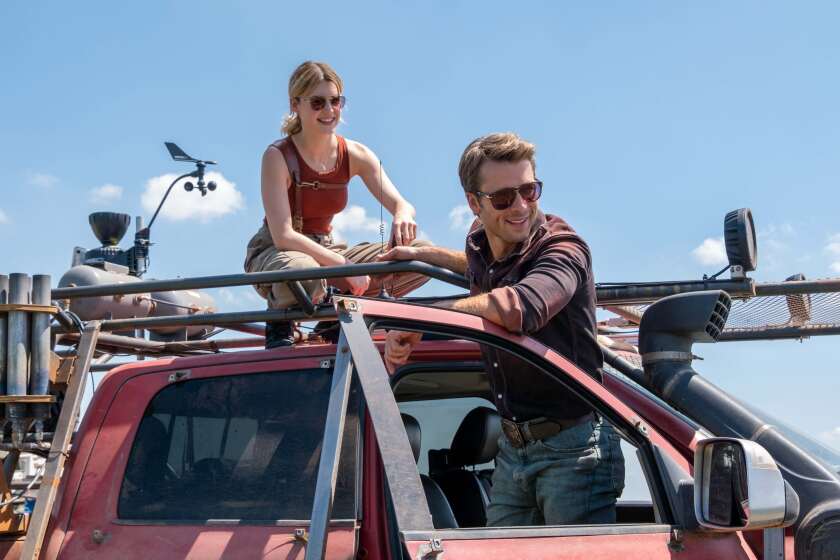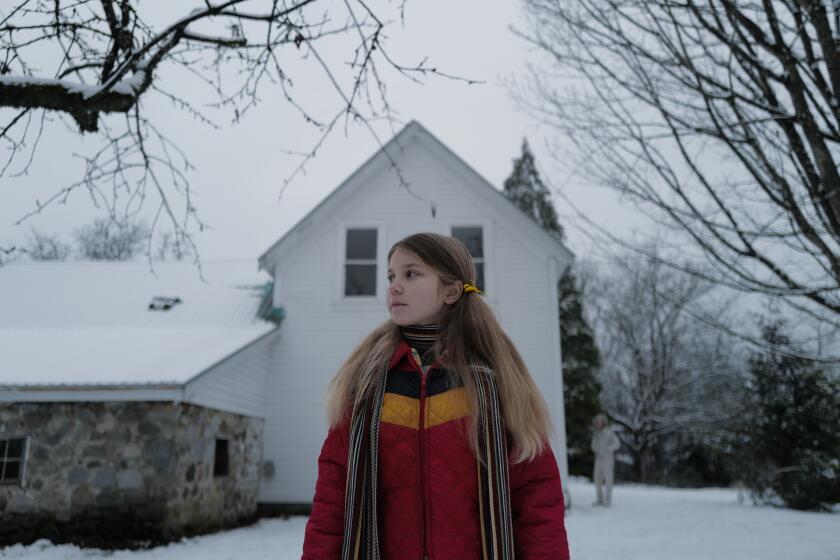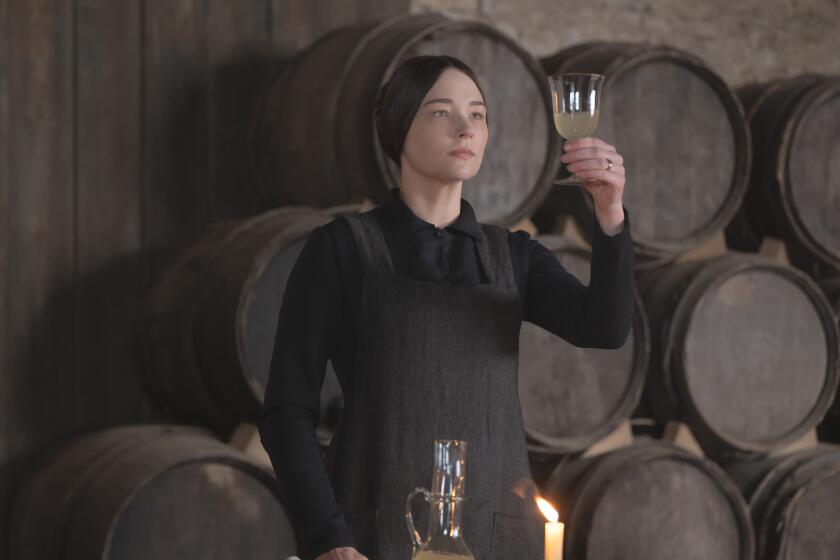A Long, Dusty Trail for Selleck and Aussie Western : Movies: John Hill’s script for ‘Quigley Down Under’ endured a 15-year journey before hitting the big screen.
“Quigley Down Under,” a “can’t-miss” script that took 15 years to hit, reaches American theaters today because its star, Tom Selleck, likes Westerns.
“I’d always fantasized about doing a Western movie,” said Selleck, who previously saddled up as one of the stars of TV movie Westerns, “The Sacketts” (1979) and “The Shadow Riders” (1982).
“I’ve never believed that the Western died. I think that Hollywood just forgot how to make a good one. I think the industry forgot that if you’ve got a good story , you don’t need gimmicks.”
John Hill wrote “Quigley” in 1974, when the Western genre appeared to have seen its last sunset. The script led to many meetings and, for Hill, to other assignments. “It opened a lot of doors for me,” said Hill, whose produced screenplays include the 1976 TV movie “Griffin and Phoenix: A Love Story,” starring Jill Clayburgh and Peter Falk, and the feature films “Heartbeeps” (1981) and “Little Nikita” (1988).
“Quigley,” inspired by a Los Angeles Times’ front-page story that explored the genocide of aborigines in the latter 1800s, is about a cowboy who answers an ad placed by a British landowner in Australia. After arriving in Australia, Matthew Quigley discovers that he has been hired to help kill aborigines.
The script was first optioned in 1979 by producer Mort Engelberg for Steve McQueen, with whom he teamed on “The Hunter.” As it turned out, “The Hunter” marked the final film for McQueen, who died of cancer in 1980.
Several years later, “Quigley” made its way to CBS Theatrical Films where it was attached to director Rick Rosenthal (“Bad Boys”).
The project was later adopted by Warner Bros., with Selleck--then starring as TV detective “Magnum, P.I.”--as the hoped-for star, and Lewis Gilbert (“Educating Rita”) attached to direct.
“But for a lot of reasons, the project didn’t happen,” said Selleck, who eventually went on to do the box-office hit “Three Men and a Baby” (1987).
Meanwhile, Warner Bros.--which had been associated with “Quigley” for about three years--dropped the option.
Two weeks later, to Hill’s bemusement, the script became the subject of furious bidding between Pathe Entertainment, Disney and--in a repeat performance--Warner Bros.
Hill wound up with a $250,000 payment from Pathe--”which is pretty good, when you consider that for 15 years I’d been making money optioning and rewriting that screenplay.”
Added Hill: “I thought it was all rather ironic. My thinking was: ‘What’s wrong with this picture?’ I was 42, and it was a Western. I was supposed to be 24, and it should have been a movie about two cops, one black and one white. You know?”
As for Pathe: it brought together Selleck and director Simon Wincer, who won accolades and an Emmy for his direction of the TV miniseries “Lonesome Dove.”
According to Alexandra Rose, who co-produced “Quigley” with Stanley O’Toole for Pathe, the changing times--in regard to filmmaking conditions in Australia--worked in the film’s favor.
“It’s a movie that always had to be made in Australia. In the ‘70s, that was practically an impossible thought--Australian film crews were an unknown quantity. But in the last three or four years, it’s gotten much easier to film there.”
She credited Pathe chief Alan Ladd Jr. with “having the foresight to see that the time was right for this movie”--and for agreeing to commit to its $20-million budget.
Filmed over four months last year, “Quigley” was originally scheduled for release this past summer. It was pushed back when it changed distributors, from Warners to MGM/UA, as a result of Pathe’s bid to acquire MGM/UA.
According to Selleck, one of his biggest challenges was stepping into the boots of a character rooted in the Western myths etched by the likes of John Wayne and Clint Eastwood.
“It’s wonderful to play larger-than-life, but it’s also intimidating for an actor. You wonder, my God, am I going to be enough?”
More to Read
Only good movies
Get the Indie Focus newsletter, Mark Olsen's weekly guide to the world of cinema.
You may occasionally receive promotional content from the Los Angeles Times.






